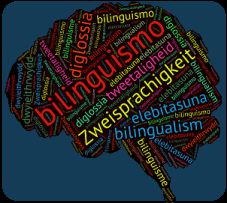The School of Psychology and Clinical Language Sciences at the University of Reading is inviting applicants for PhD studentships in language sciences. Research in the Bilingualism in the Brain lab covers work in psycholinguistics and neurolinguistics of bi-/multilingualism, with a particular interest in neuroplasticity. Indeeed, increasing evidence suggests that speaking two or more languages has particular effects on the brain: First, it appears to change its function, structure and connectivity (Pliatsikas, 2020; Pliatsikas and Luk, 2016), and second, it appears to enhance the cognitive abilities of bi-/multilinguals, as well as to preserve them in older age, creating what has been dubbed a “cognitive reserve” in elderly bilinguals (Bialystok, Craik, & Luk, 2012). Research in our lab aims to build on the existing literature by using behavioural and neuroimaging methods to investigate questions such as: how do these behavioural and structural effects develop over time, and with increased bilingual experience? Are factors such as proficiency and immersion in bilingual environments critical? What are the effects in situations such as bimodal bilingualism (where individuals use a sign and a spoken language) and bidialectalism/diglossia (where individuals speak two variants of the same language?). For a list of past and current PhD projects in our lab, check this link: https://research.reading.ac.uk/christos-lab/students/.
SeNNS Doctoral Training Partnership
The University of Reading is part of the ESRC funded SeNSS Doctoral Training Partnership which awards studentships for either 3-year PhD study, or combined MSc/PhD study involving a 1-year MSc followed by 3-year PhD. These studentships are open to UK and international applicants, and cover fees at the UK rate, and a yearly stipend. Expression of interest shoud be submitted by mid- December 2022.
Magdalen Vernon Studentship
The School of Psychology and Clinical Language Sciences also offers the Magdalen Vernon Studentship. This is a 4-year PhD award that covers UK fees and provides a graduate teaching assistantship. This is open to UK and international applicants. The deadline for applications is mid- December 2022.
Interested applicants should contact Christos Pliatsikas (c.pliatsikas@reading.ac.uk) to discuss their proposal and application, and also the School of Psychology and Clinical Language Sciences at pcls.pgr@reading.ac.uk to register their interest in applying.

